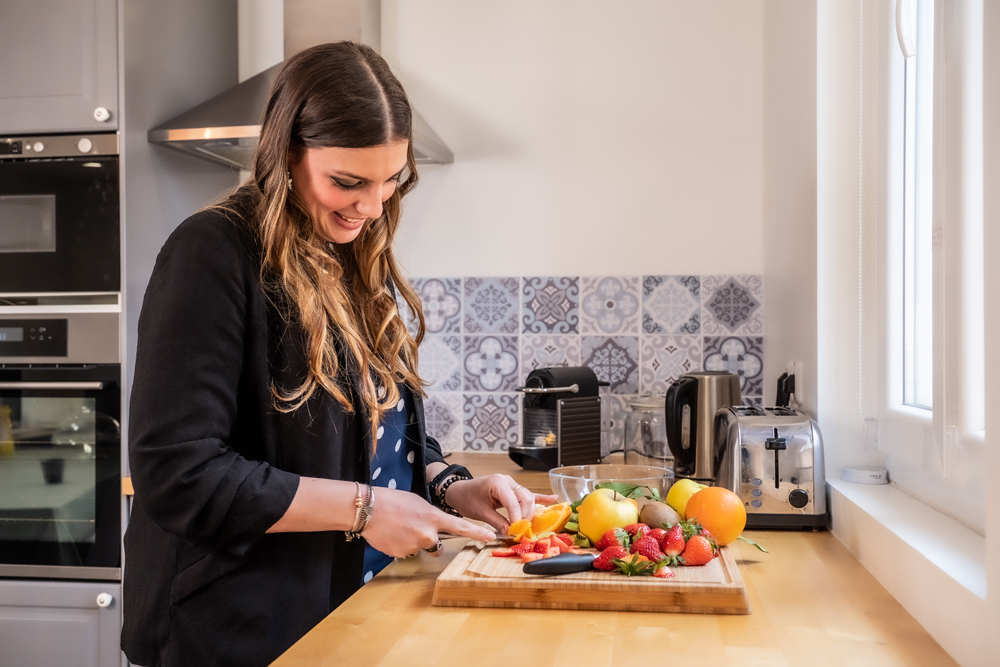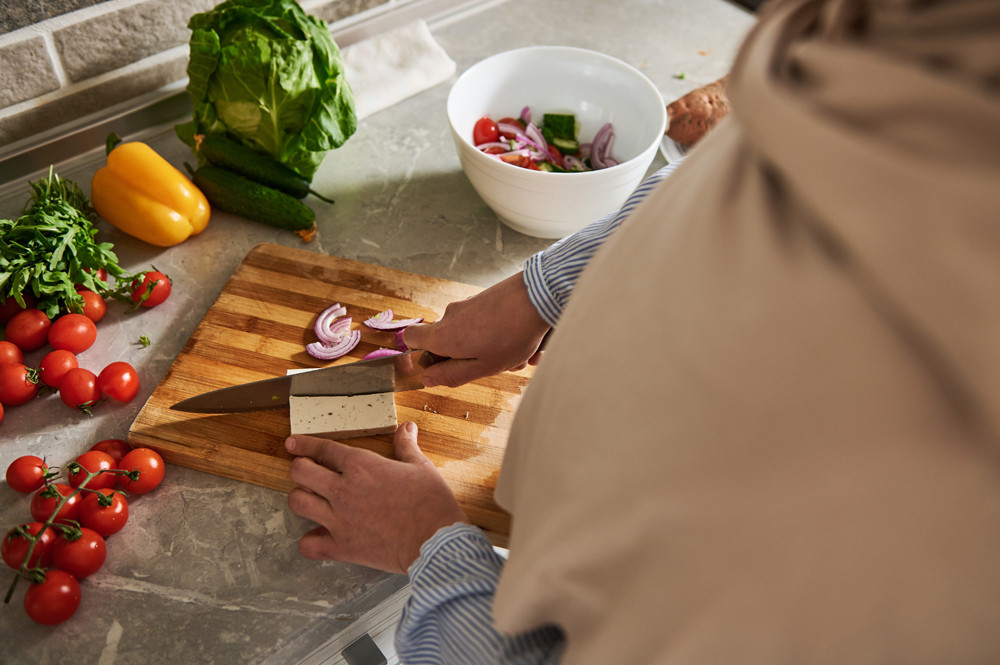
Ramadan is a period of self-reflection, a time for spirituality and family, and provides a unique opportunity to reconnect with the body, mind and faith. It can also be a natural starting point for people who want to lead a healthier lifestyle and lose weight. Research shows that many people with excess weight can lose weight and fat mass during Ramadan. However, this usually only represents short-term success and is hard to maintain throughout the holy month and afterwards. Between two and five weeks after the end of Ramadan, people often return to their pre-Ramadan weight and body composition measurements.
It can also be surprising to learn that only some people lose weight during Ramadan, despite fasting. One survey published in a leading nutrition journal found that almost 60% of people put on weight during Ramadan.1 Gaining weight despite fasting may sound odd, but it makes sense, given some factors at play, such as overindulgence during the pre-dawn suhoor or the evening iftar. Outside of Ramadan, it’s common to have food cravings, so it’s no surprise that the temptation to overindulge after a full day of fasting can also be high. Paying attention to what is eaten, when, and how it’s eaten can significantly affect weight management during Ramadan.

With this in mind, here are my top tips to help you stay healthy – and even lose weight – during Ramadan.
Good nutrition is essential every day – and Ramadan should be no exception.
Firstly, when planning for the holy month, it’s essential to acknowledge the difference between fasting for Ramadan and regular or intermittent fasting, which some people use as a weight loss tactic. Ramadan fasting involves not eating or drinking anything between sunrise and sunset, whereas zero-calorie liquids such as water, tea and coffee are usually allowed with intermittent fasting. Therefore, the strict requirements around Ramadan make it even more critical to plan ahead and ensure a healthy intake of vitamins and nutrients and enough hydration during the holy month.
The first step to a healthy day is to ensure you don’t skip suhoor. This meal provides a wholesome start to your day and helps fuel your body with the energy it needs to power through your daily activities without feeling tired or fatigued. Aim for whole foods and complex carbohydrates to keep you fuller for longer - these are broken down more slowly by the body, providing a steadier energy source throughout the day. In contrast, processed foods and simple carbohydrates are digested and processed more quickly, often leaving you feeling hungry soon after eating. Some helpful choices include eggs, beans, lentils, chickpeas, oats, and fruits and vegetables. Also, try low-fat dairy products like Greek yogurt and foods that include unsaturated fats – unsalted nuts and salmon are good options.

Maha Shahin, Nutritional Consultation at Allurion Dietician Board
Thoughtfully break your fast.
Breaking your fast thoughtfully and intentionally can make all the difference in your weight loss and healthy eating goals during Ramadan. Avoid eating a large iftar right after the Maghrib azan, which can result in over-eating. It’s better to break your eating down into smaller portions to give the body time to properly digest the food. Iftar can always be followed by healthy snacks afterwards if required. Dried fruits are an excellent snack that can boost natural sugar and energy. They are also high in iron and antioxidants. For maximum benefit, pair them with a handful of raw nuts.
Get a good night’s sleep
Poor sleep can have a negative impact on day-to-day life, which can make planning and eating healthy meals more challenging. Fatigue can also affect hormones and change appetite and hunger, making fasting even more challenging.
Getting a good night’s sleep can be difficult during Ramadan when additional family and social events mark the holy month. Even so, it’s important to try and get into a routine to help your body adjust. Reducing screen time before bed or having a relaxing bedtime routine can help your body and mind wind down and prepare you for sleep. Some people aim for a minimum of four hours of sleep after iftar. They then wake for suhoor and fajr before getting a few more hours of sleep and starting the day. It can also be a good idea to sneak a ‘nap’ of 20 or 30 minutes in the afternoon if your work or home life is flexible enough.

Stay active during Ramadan
Trying to stay active is important at any time of year, especially during Ramadan. Daily walks of just 15 to 20 minutes can work wonders for your circulation, digestion, energy levels and mental health. Short resistance training sessions can also be a good way of fitting in a burst of exercise on a busy day. Exercising about two hours after iftar can help to aid digestion and ensure you don’t go to bed feeling too full. While activity levels are key to a healthy lifestyle and maintaining a healthy weight, combining them with mindful eating is also essential.

And finally …
It can help to get into a healthy routine for suhoor and iftar before the first day of Ramadan. Try and set realistic goals and patterns of eating that are simple to stick to.
Lifestyle patterns are affected by lots of different factors – regardless of Ramadan. It’s crucial to prioritise eating healthily and exercising regularly all year round. When it comes to diet, your food should be balanced and varied – and if you’re looking to lose weight, Ramadan can be a great time to start the wheels in motion. For extra support, you might like to consider a weight-loss program like the one offered by Allurion, which combines a 16-week gastric balloon with a behavioural change program that focuses on personalised nutrition coaching with digital tracking tools.
















